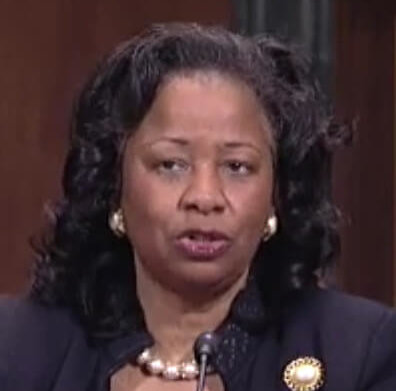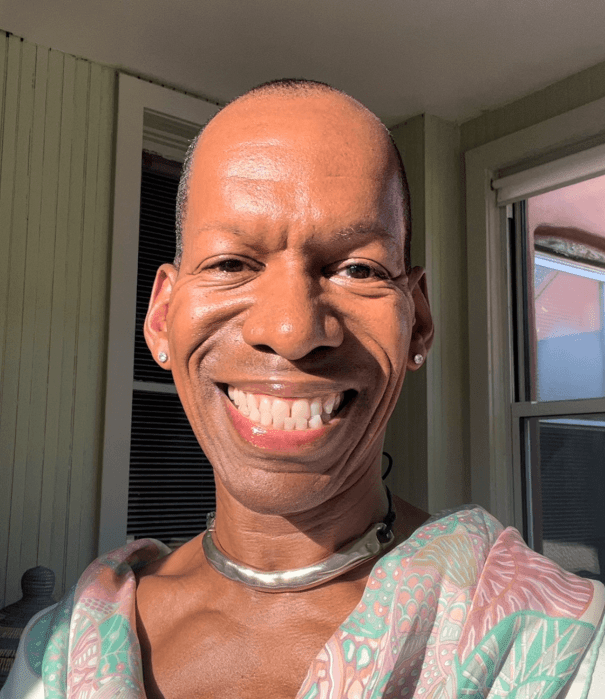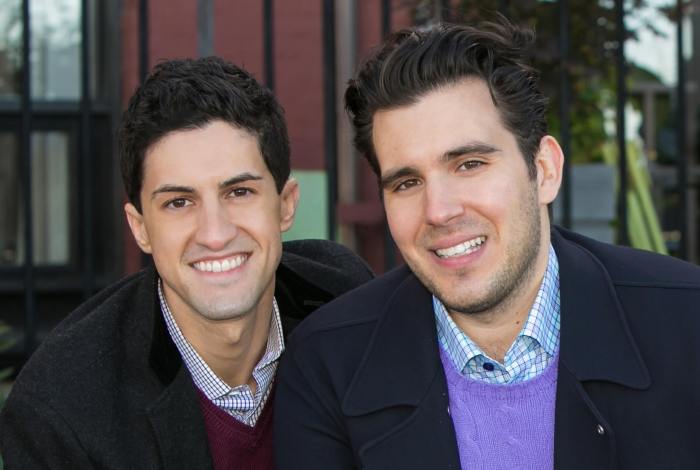US District Judge Loretta C. Biggs ruled on June 10, 2022, that the State of North Carolina violated the 14th Amendment’s Equal Protection Clause and Title VII’s anti-discrimination requirements by providing a health insurance plan for state employees and their dependents that categorically excludes coverage for treatments “leading to or in connection with sex changes or modifications” from the state health insurance plan for state employees and their dependents. She issued an injunction requiring the plan to provide such coverage.
The exclusion written into the formal plan, known as the North Carolina State Health Plan for Teachers and State Employees (NCSHP), excludes both psychological assessment and treatment as well as “treatment or studies leading to or in connection with sex changes or modifications and related care.” Thus, on its face the plan deprives employees and their dependents of coverage for counseling, hormone therapy, or any surgical treatment related to gender transition. However, the state claims that it has not enforced the exclusion regarding counseling, so the focus of the case moved to treatment.
The original complaint, filed on March 11, 2019, alleged violations of the Equal Protection Clause, Title IX of the Education Amendments of 1972, and Section 1557 of the Affordable Care Act, naming as defendants both the state officials responsible for running the plan and three North Carolina public state universities.
The defendants moved to dismiss the case, claiming that the plan did not discriminate based on gender identity, and even if it did, the complaint failed to state legal claim because neither the Supreme Court nor the Fourth Circuit had ruled definitively that discrimination because of gender identity violates federal laws against sex discrimination. The court denied the defendants’ motion, and was upheld by the Fourth Circuit Court of Appeals on April 8, 2020. The Supreme Court rejected the state’s motion to review that ruling on January 18, 2022.
Significant legal developments took place in the interim, most importantly the Fourth Circuit rendering a final decision in Gavin Grimm’s gender identity discrimination case under Title IX against a Virginia School District and the Supreme Court’s ruling in Bostock v. Clayton County in June 2020 that because it is impossible to discriminate against somebody due to their transgender status without discriminating, at least in part, because of their sex, such discrimination violated Title VII of the Civil Rights Act of 1964. Although Justice Neil Gorsuch, writing for the court, said that the only question the court was deciding was whether claims for discrimination because of sexual orientation or transgender status could be brought under Title VII, in January 2021 President Joe Biden’s first executive order embraced the Bostock ruling and asserted that its reasoning applied to all federal laws banning sex discrimination. The Biden interpretation, as adopted by federal agencies, is under challenge in several different lawsuits.
Shortly after the Bostock ruling was announced, the plaintiffs amended their complaint in August 2020 to add another plaintiff, a transgender state employee who asserted a claim of discrimination in employee benefits in violation of Title VII. Since health insurance is a form of compensation as an employee benefit, such discrimination would come within the ambit of Title VII. The Title VII claim was asserted against both the plan and the agency for which this additional plaintiff worked, the Department of Public Safety (DPS).
The Supreme Court’s refusal to review the Fourth Circuit’s decision on Judge Biggs’ denial of defendants’ motion to dismiss, taken together with the Fourth Circuit’s Grimm ruling, was enough to persuade the universities to settle the claims against them, leaving the state health plan’s leaders (the State Treasurer and the executive director of the plan) and DPS as the remaining defendants. Thus, the Title IX claim fell out of the case, although the interpretation of Title IX will be relevant if Judge Biggs eventually rules on the Affordable Care Act (ACA) claim. After discovery, the plaintiffs and defendants moved for summary judgment on the issue of liability under Equal Protection, Title VII, and the ACA, with the understanding that if the court ruled in favor of plaintiffs, there would have to be a trial later on the issue of damages if the parties did not settle plaintiffs’ monetary claims. (The issue of injunctive relief is not up to a jury.)
Before addressing the merits of the plaintiffs’ discrimination claims, Judge Biggs devoted considerable discussion to the plaintiffs’ motion to block testimony by various “expert witnesses” presented by the state, all of whom were deposed during discovery. After detailed analysis of their proposed testimony, contrasted with the plaintiff’s expert testimony provided through an extensive amicus brief by a group of major medical professional associations, the judge exercised her function as a gatekeeper against irrelevant or unqualified expert testimony by significantly limiting what the “experts” could testify about in connection with this case. In such a contest, the broad consensus of highly respected professional associations will weigh heavily against the views of dissenting “outliers.”
Judge Biggs found that many of the “expert” opinions concerning gender-affirming care espoused by defendants’ experts were not supported by the kind of research and data that is necessary to allow experts to offer their professional opinions in evidence. Their testimony was similar in many respects to the sort of “expert testimony” that has been ruled out in many lawsuits challenging anti-transgender discrimination in schools, health care, and employment. Several of them referred scornfully to a “Transgender Treatment Industry” that was attempting to “silence open public debate on the risks and benefits of transgender medical procedures and political ideologies.” The judge noted that some of the experts were “connected” to Alliance Defending Freedom, which battles to defend transphobic policies from a religious perspective.
Turning to the merits of the case, Judge Biggs relied heavily on the Supreme Court’s Bostock ruling and the Fourth Circuit’s Grimm ruling for her key holdings. Although the Supreme Court has not yet ruled on whether gender identity discrimination claims merit “heightened scrutiny” under the Equal Protection Clause, which would require the state to show that it had a highly persuasive reason for its discriminatory policy, the Supreme Court has established such a standard for sex discrimination claims. Judge Biggs found that the reasoning of the Bostock decision supported the plaintiff’s arguments for heightened scrutiny on their equal protection claim as a form of sex discrimination, and that the state’s justifications were not sufficient to withstand such scrutiny.
The judge rejected the defendants’ argument that their policy was not discriminatory against transgender individuals. She found it discriminatory on its face, commenting that “the broad language of the Plan distinguishes between medically necessary treatments that align with the member’s biological sex and medically necessary treatments — often the same medically necessary treatments — that do not align with his sex.” Thus, the plan discriminates based on sex. Indeed, she wrote, the plan “transparently discriminates against its transgender members,” rejecting the defendants’ argument that the plan discriminates based on “diagnosis,” rather than on the identity of people. The opinion includes a lengthy, sophisticated dissection of the defendant’s arguments, weaving in key aspects of the Grimm and Bostock rulings to bolster the court’s conclusion of a constitutional violation, and noting that one of the defendants’ experts had conceded that gender-affirming care is appropriate in some cases, which cuts directly against the plan’s categorical exclusion of such care.
Judge Biggs granted summary judgment to the plan on the Title VII claim, however, finding that the plan is not an employer or the agent of an employer under that statute, which applies only to discrimination in employment.
However, the judge granted summary judgment to the plaintiffs on the Title VII claim against the Department of Public Safety (DPS), even thought it argued that it had nothing to do with dictating the content of the plan, but merely provided insurance to its employees through the state plan as required by state law. Summoning the reasoning that she had used in her earlier ruling to deny the universities’ motions to dismiss the Title IX claims, Judge Biggs found that although DPS did not make the decision to exclude gender-affirming healthcare coverage, nonetheless as an employer offering that plan to its employees as part of their compensation, it could be held liable under Title VII for providing a plan with such an exclusion.
Thus, she concluded, the DPS employee who was denied coverage for gender-affirming care could assert the Title VII discrimination claim against his employer and has a claim for damages. This plaintiff received hormone treatments and surgery to transition, but was denied insurance coverage and had to come up with substantial money for these services on her own, and thus had a compensable injury. “The fact that DPS did not create the plan or decide what it covered is not dispositive,” wrote the judge. “Put simply, if DPS had not provided [the plaintiff] with discriminatory health insurance, she would not have been injured. DPS’s conduct is therefore a but-for cause of her injury.”
Judge Biggs refrained from ruling on the Affordable Care Act claim for the simple reason that whether an insurance plan can be sued for discrimination under the ACA is up in the air because of a regulation adopted by the Trump Administration, which interpreted the discrimination provision to apply only the providers of health care, not to insurance companies and plans. The validity of that regulation is much contested, and the Biden Administration has indicated it will be replaced with a new one, although the process of repealing and replacing a regulation is time-consuming under the Administrative Procedure Act. Judge Biggs decided that a ruling on the ACA claim could await that development, and the wait was not harmful to plaintiffs, because she was already ruling in their favor on the Equal Protection and Title VII claims.
To effectuate her summary judgment ruling, the judge issued an order that will “permanently enjoin NCSHP from enforcing the Plan’s exclusion and order NCSHP to reinstate coverage for ‘medically necessary services of treatment for gender dysphoria.’” She also granted the plaintiffs’ motion to place under seal portions of the expert reports and testimony in the court records that describe in detail the medical records of individual plaintiffs in the case, in order to protect their privacy rights.
In concluding her opinion, Judge Biggs asserted that “politics and emotion are not admissible as evidence a court of law. Plaintiffs’ doctors, their experts, every major medical association, and Defendant’s own third-party administrators all agree that, in certain cases, gender-affirming medical and surgical care can be medically necessary to treat gender dysphoria. Defendants attempt to create scientific controversy in this uniform agreement through experts who mix their scientific analysis with hypothetical speculation and political hyperbole. Only science that is relevant, reliable and offered by a qualified expert is admissible, however, and the admissible portions of Defendants’ expert’s testimony, even when taken in the light most favorable to Defendants, do not justify the exclusion at issue. Defendants’ belief that gender-affirming care is ineffective and unnecessary is simply not supported by the record. Consequently, their categorical sex- and transgender-based exclusion of gender-affirming treatments from coverage unlawfully discriminates against Plaintiffs in violation of the US Constitution and Title VII.”
The defendants have an important strategic decision to make. They can try to appeal this ruling to the Fourth Circuit and ultimately the Supreme Court, they can go to trial and let a jury determine the damages and then haggle over the amount in a post-trial motion, or they can follow the pragmatic lead of the state universities and settle the case.
The plaintiffs are represented by Lambda Legal, the Transgender Legal Defense and Education Fund, and attorneys from McDermott Will & Emery LLP. The influential amicus brief on behalf of the American Psychiatric Association and several other major professional health care associations was produced by Brooks, Pierce, McLendon, Humphrey & Leonard, of Greensboro and Raleigh, N.C.
Judge Biggs was appointed to the district court by former President Barack Obama.


































